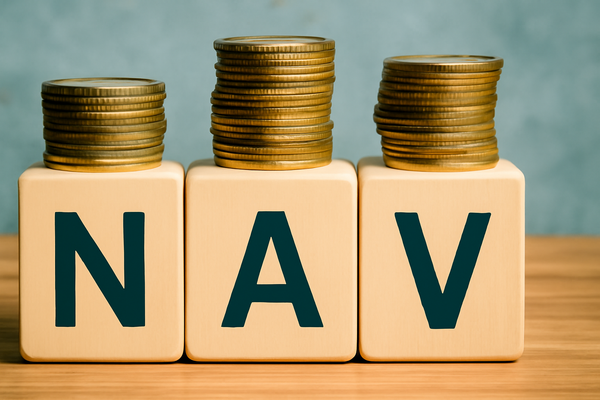How does inflation affect your investment portfolio?
Inflation eats into savings and returns. Here’s how it impacts your portfolio and what you can do today to safeguard long-term wealth.

Prices of everyday goods and services don’t just rise randomly — they reflect the underlying force of inflation, a reality every saver and investor has to face. While most people notice it in their day-to-day expenses, the real impact shows up in how it erodes the value of money over time.
Inflation doesn’t just make your grocery bills rise. It also quietly eats into your investment returns. As per RBI data, India’s retail inflation rate stood at 4.83% in April 2025, slightly down from 4.85% in March. That number may seem small, but its long-term effect on your savings can be serious. Let’s get into the details of how this impacts your investments and what smart investors are doing to stay ahead.
The impact

Inflation reduces the purchasing power of money. When the rate of return on your investments is lower than inflation, the real value of your returns diminishes.
For instance, if you earn 6% annually from a fixed deposit and inflation is 5%, your real return is just 1%. Over time, this erodes the value of your savings, especially for long-term goals like retirement or a child's education.
Here’s how the inflation effect on investment plays out across different asset classes:
The effects
Inflation influences your investments both directly and indirectly. Here’s how:
- Reduces Real Returns: A 9% return sounds great until inflation trims it down to 4% in real terms. Which means the actual increase in your wealth is smaller than expected.
- Impacts Bond Prices: When inflation rises, interest rates typically follow. As a result, the value of existing bonds decreases, affecting your fixed-income portfolio.
- Low Purchasing Power: Your fixed income or annuity won’t stretch as far when prices of goods and services consistently rise, limiting lifestyle choices.
- Increases Volatility: Inflation uncertainty often drives market volatility, leading to unstable stock prices and lower investor confidence.
- Skews Asset Allocation: When inflation is high, investors shift towards assets more likely to deliver inflation-beating returns, affecting overall diversification.
Investing during inflation
While inflation can’t be controlled, your investment choices certainly can. Here's how to stay ahead:
- Diversify into Equities: Stocks of fundamentally strong companies tend to pass inflation costs to consumers, preserving margins and shareholder value. Equity investment is one of the most reliable ways to beat inflation.
- Invest in Gold: A proven hedge during inflationary phases. You can invest via Sovereign Gold Bonds or Gold ETFs for added tax efficiency and storage safety.
- Use SIPs in Mutual Funds: Systematic Investment Plans (SIPs) allow you to stay invested during inflation cycles, benefit from rupee cost averaging, and reduce emotional investment decisions.
- Target Real Returns: Always measure investments by real (inflation-adjusted) returns, not just nominal figures. It gives a more accurate picture of your wealth growth.
- Explore Inflation-Linked Bonds: These government securities offer returns that are directly adjusted for inflation, protecting against rising prices and preserving purchasing power.
Realistic: SIP vs FD
Let’s compare the performance of a SIP in an equity mutual fund and a traditional Fixed Deposit over 5 years during an average 6% inflation period.
Spotting the signs
Recognising the signs early can help you act before your portfolio suffers:
- You rely heavily on FDs or savings accounts: Returns rarely exceed inflation. Reassess allocation to include higher growth options.
- Your portfolio’s growth hasn’t matched inflation for 3–5 years: Calculate your real returns and shift strategy if needed.
- You’ve avoided gold or real assets completely: Consider tactical allocation towards assets that historically hedging against inflation.
- Your investment goals are based on today’s value of money: Recalculate targets based on projected inflation to stay on track.
How to make your portfolio Inflation-Proof?
Being proactive and building a resilient portfolio that withstands inflationary pressure is essential. Here are a few actions to consider:
- Review and Rebalance Regularly: A yearly review helps you realign your asset allocation with inflation-adjusted targets and current market conditions.
- Avoid Holding Excess Cash: While liquidity is important, idle cash earns negligible returns. Redirect it into short-term mutual funds or liquid funds.
- Add Real Assets: Though illiquid, investments in physical assets like gold and property can be inflation buffers if used wisely.
- Focus on Growth Assets: Equities and equity mutual funds should form the core of your long-term inflation-proof strategy due to their growth potential.
- Maintain a Long-Term Horizon: Short-term market reactions to inflation can be erratic, but disciplined long-term investing often compensates for temporary volatility.
Think in terms of value, not just numbers
Understanding the impact of inflation on investment is about more than numbers. It’s about ensuring your money keeps its value and helps you reach your financial goals.
Even when inflation isn’t in the news, it quietly affects how far your savings will go. Awareness and acting early can help you build a more resilient investment plan.




